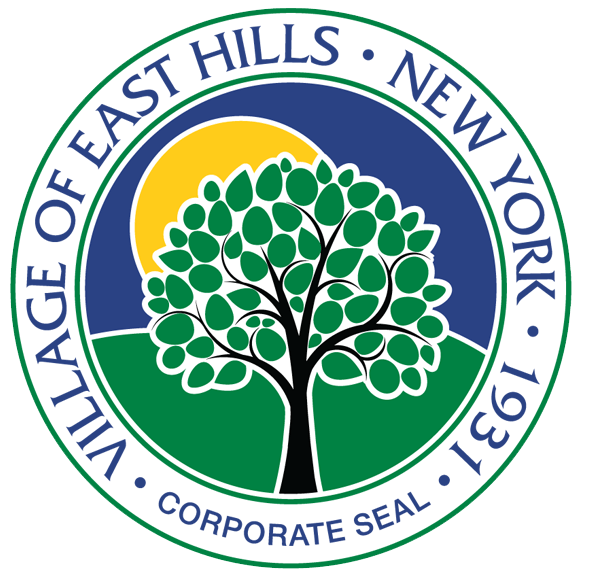Flood Insurance
In December, 2005 the Village Board adopted measures which made Federal Flood Insurance available to all our residents. It is now offered on your home by most insurance agents.
Even though East Hills is located on one of the highest points in Nassau County and even though our community is not in a flood zone, the ever changing weather patterns may prompt you to purchase Flood Insurance coverage from your insurance agent or broker. For the first time in the history of the village we have made it available. For all the details, including the full nature of the insurance, its building and contents limits, its exclusions, deductibles and its cost, please contact your insurance agent or broker. Our community number of 361627. The choice is yours.
Disclaimer: The message is for informational purposes only, and cannot be construed as a solicitation, offer, or advice on whether Flood Insurance should be purchased. New York State licensed insurance agents and brokers are the only parties that can discuss the extent and advantages of the insurance for your home, and then sell this coverage if you elect to purchase the insurance. All interested parties are advised to discuss this insurance in detail with a licensed insurance agent or broker in order to decide whether the insurance should be purchased on your home.
CLAIMS AGAINST NASSAU COUNTY:
Murray Wilensky (516) 571-3031
More on Federal Flood Program
East Hills Approved in National Flood Insurance Program
Mayor Michael Koblenz announced that the Village of East Hills has been approved and is now part of the National Flood Insurance Program. The steps taken by the Village included passing required flood plain management ordinances, resolutions and applications. Residents are now permitted to purchase flood insurance for their homes, most likely through their regular insurance agents and brokers. Flood insurance is almost universally excluded from a homeowner’s insurance policy. However, damage caused by rain directly and wind is commonly covered under a homeowner’s policy.
Flood insurance is underwritten by the federal government but is offered by more than a 100 insurance companies and is sold through their insurance agents and brokers, and still other agents and brokers who deal directly with FEMA.
The Mayor emphasized that East Hills is not in a flood plain, and instead rests at one of highest elevations in Nassau County. “Yet,” he said, “with the ever-changing weather patterns which are caused either by the greenhouse effect or other scientific intangibles, residents may want to avail themselves of this added insurance protection. Flooding can occur almost anywhere, even in our community, when sufficient water collects and then overflows or charts a new course for runoff.” Residents who are interested in analyzing and determining the cost/benefit of the coverage for their home should consult their insurance agents for their professional advice. Agents can inform residents of the insurance limits offered through the government program, the cost of the insurance, and the property and equipment which is covered or excluded in the event of a loss. For convenience purposes, the East Hills flood insurance community number is 361627.
In areas which are flood prone, like communities on the coastline, lenders typically require the coverage be in place before they will provide financing. Since East Hills is not in a designated flood plain, it is unlikely that banks and lending institutions ever require the insurance to be purchased.
A flood is defined in the standard flood insurance policy as “A general and temporary condition of partial or complete inundation of two or more areas of normally dry land or two or more properties (at least one of which is your property) from overflow of inland or tidal waters, from unusual and rapid accumulation or runoff of surface waters from any source, or from mudflow.”
The Mayor expressed his appreciation to Mark Levy for providing the impetus and valuable information to implement the program in record time.
The program is administered by the Federal Emergency Management Agency, a component of the Department of Homeland Security.
